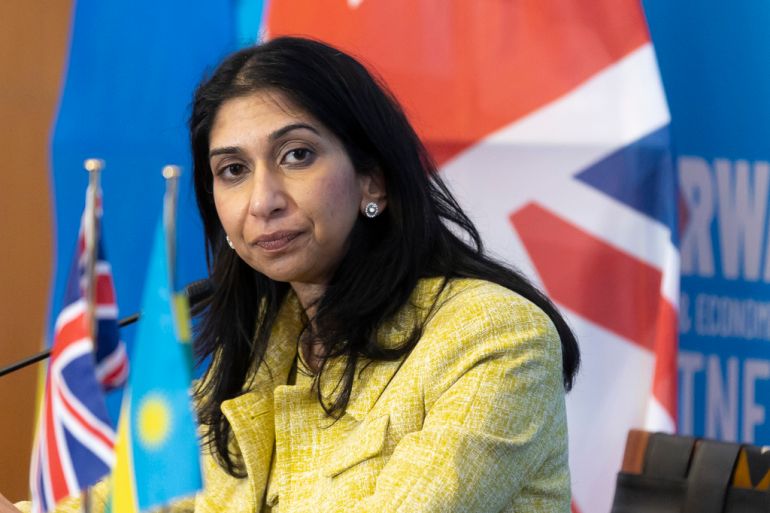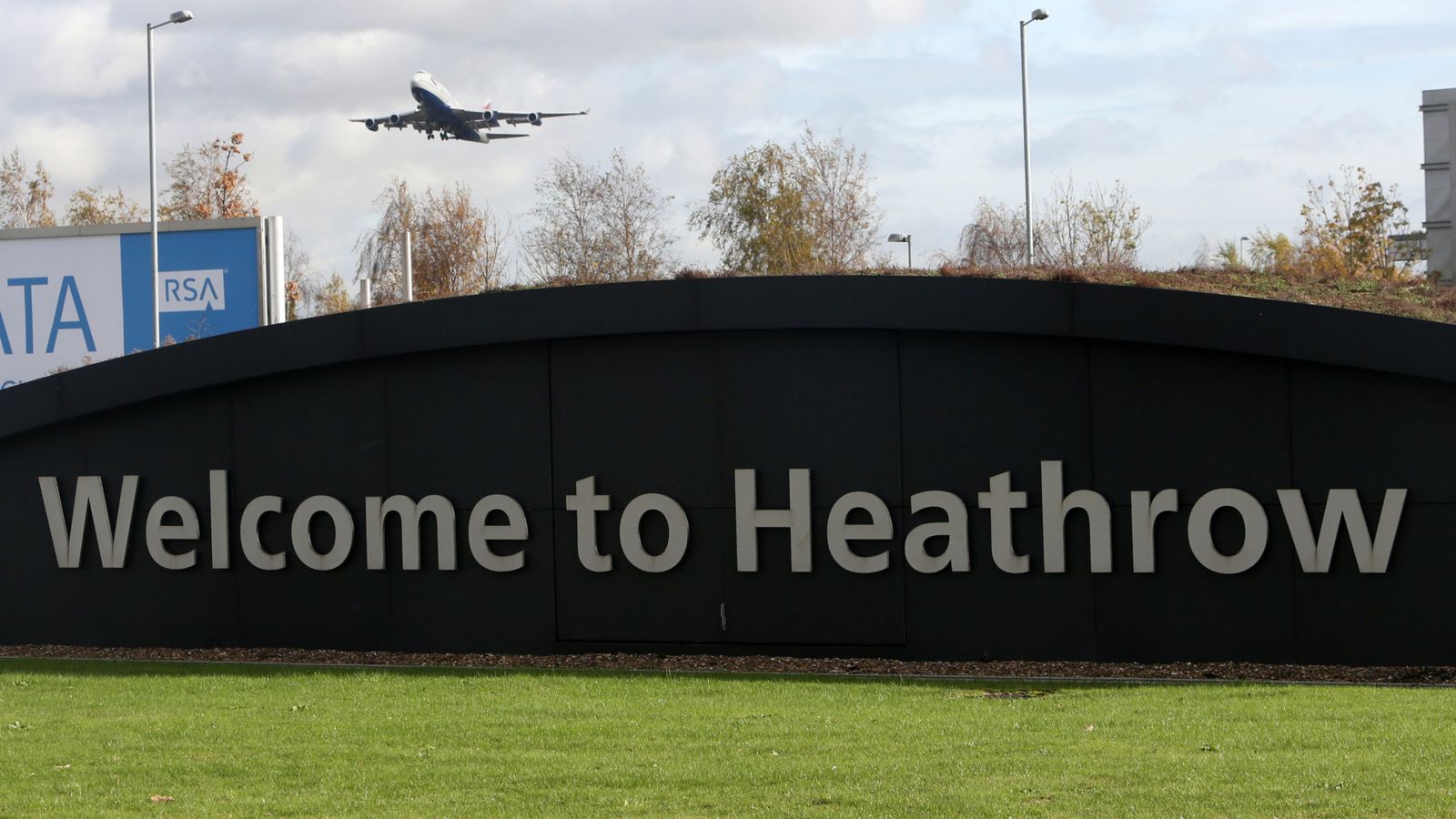UK’s Braverman to discuss controversial migration deal in Rwanda
Asylum seekers, aid groups and a border officials union filed lawsuits to stop the conservative government from acting on a deportation agreement with Rwanda.

The United Kingdom’s interior minister, Suella Braverman, has arrived in Rwanda to discuss an agreement in which the UK will relocate undocumented refugees and migrants there as she doubles down on a plan that has been mired in legal challenges and controversy.
Last year, the UK agreed to send tens of thousands of people more than 4,000 miles (6,400km) away to Rwanda as part of a 120-million-pound ($146m) deal. No flights have taken off yet because opponents are challenging the policy in the courts.
The deal with Rwanda is a major part of Britain’s plans to detain and deport asylum seekers arriving in small boats across the English Channel.
Braverman met Rwanda’s foreign minister, Vincent Biruta, on Saturday and told reporters in Kigali that she had agreed extra support for the people whom the UK sends to the country.
“Many countries around the world are grappling with unprecedented numbers of illegal migrants, and I sincerely believe that this world-leading partnership … is both humanitarian and compassionate and also fair and balanced,” the home secretary said at a news conference with Biruta.
Suella Braverman
Biruta said the proposals “offer better opportunities for migrants and Rwandans alike” and would help with the British government’s goal to disrupt people-trafficking networks.
Braverman is expected to meet Rwandan President Paul Kagame on Sunday.
The partnership was announced in April, but the first deportation flight was blocked by an injunction from the European Court of Human Rights.
In December, London’s High Court ruled the policy lawful, but its judges also said the government failed to consider the individual circumstances of the people it tried to deport, signalling further legal battles ahead.
Opponents are seeking to appeal that verdict in April and it could yet go to Britain’s Supreme Court later in the year.
-al jazeera






